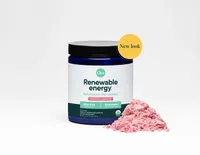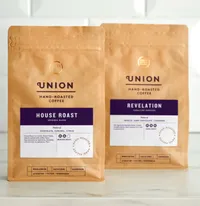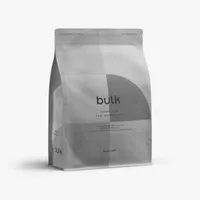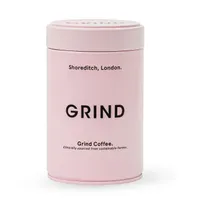
Celebrity news, beauty, fashion advice, and fascinating features, delivered straight to your inbox!
You are now subscribed
Your newsletter sign-up was successful
We asked the experts for their take.
Ever heard of the link between pre-workout coffee and an improved sweat session?
Well, you have now, and for good reason, too. Pre-workout coffee is trending as an easy way to pep yourself pre-workout and, in turn, smash your run, weight training, Reformer Pilates class, or whatever other workouts you might have on the agenda for this week.
First things first: a quick definition for you. A pre-workout is a supplement that gym-goers and athletes sometimes take pre an intense session to give them energy. How? Well, spoiler alert: with lots of caffeine. "Most popular pre-workouts have between 300 and 500mg caffeine, the equivalent of drinking three or four double espressos in one go," explains Gymbox sports scientist George Coote.
Obviously that's an awful lot of caffeine - so what about a slightly less intense alternative? Enter stage right, a good old cup of coffee. Ellie Loxton of Two Chimps Coffee explains: "Experts published the first study into the link between caffeine and an improved workout in 1907," she shares. "Most point to the same conclusion - that coffee is effective as an ergogenic aid, can increase power output, boost endurance and fine-tune focus, too."
Here, we pick the brains of the two experts to get their take on whether a cup of pre-session joe can really boost your workout. Don't miss our guides to workout recovery, delayed onset muscle soreness, and what to eat after a workout, while you're here.
Pre-workout: so, can coffee improve your workouts?
One 2016 study found that those who supplemented pre-workout saw "significant improvements" in both anaerobic peak and mean power values. That being said, Cootes warns that your daily recommended intake of caffeine is between 3mg/kg and should not exceed 6mg/kg/day. "This means a 60kg female should be consuming between 180-360mg per day," he shares.
Celebrity news, beauty, fashion advice, and fascinating features, delivered straight to your inbox!
Other top tips: pre-workout supplements are unregulated and often the ingredients label can be misleading, so make sure to do thorough research before buying or taking any supplement. "Check the World Anti Doping Agency (WADA) for their list of approved supplements, as well as follow guidance from the Food and Drug Administration (FDA)," he recommends.
What about coffee as a pre-workout, instead? "Caffeine has many positive effects on exercise - a 2014 study found it can reduce the effect of effort, pain and fatigue associated with exercise, potentially giving people an opportunity to work harder and longer in order to reach their fitness goals," explains Coote.

"Your speed, strength and endurance will likely increase," explains Loxton. "One report by the British Journal of Sports Medicine found regular coffee drinkers to be 4.2 seconds speedier than their decaf-drinking counterparts. They had a faster 'finishing burst' in the 1500 metres, too."
Not only that, but coffee also takes care of the cognitive side of things by improving your rate of perceived exertion (RPE). In other words, you'll feel motivated to push harder and for longer.
Why is coffee so popular pre-workout?
A few reasons. It's cheap, it's easy to consume, and it's readily available. Just, as above - be careful not to overdo it.

What's the difference between coffee and a pre-workout for women?
As above, a pre-workout is a pre-bought supplement that takes kind of like squash designed specifically for consumption - yep, you guessed it - pre-workout to boost your energy and, in turn, your session.
Do note, though: there's a lot more caffeine in pre-workout than coffee, and more doesn't always = better.
"An espresso has approximately 60mg of caffeine whereas pre-workout contains anything from 300 to 500mg," shares Coote (remember that you should aim for 180 to 360mg per day). "Plus, a pre-workout will have more ingredients, ranging from caffeine, to electrolytes, to creatine, to protein."
Ora Organic Pre-Workout Powder
£29.99
Union Coffee House Roast Cafetière Grind
£5.50
Bulk Complete Pre-Workout
£5.49
Tin of Grind Coffee
£9
Lean with Lilly Strawberry Pre-Workout
£20.00
4 benefits of drinking coffee pre-workout
So, how do you actually benefit from drinking coffee before a sweat session? Good question.
1. Reduces tiredness
Caffeine is an effective natural stimulant, explains Loxton. "It makes us more alert - by blocking the drowsiness-inducing adenosine compound and allowing the pituitary gland to release adrenaline making you feel awake."
2. Increases power output
Not only that, but drinking coffee stimulates your central nervous system. "This elevates heart rate and, some studies suggest, increases blood flow to muscles – essential providing mid-workout muscles with the energy they need," continues Loxton.
Fun fact: the liver also releases glucose into the bloodstream, giving your blood sugar level a boost.
3. Improves reaction time and concentration
Adrenaline is our 'fight or flight' hormone. "With your muscles primed and concentration on-point, pre-workout coffee leaves you ready to go, lightning-quick in tennis or cutting all-important seconds off your PB," she shares.
4. Increases fat oxidation
And finally, multiple studies have found coffee to increase fat oxidation. "By raising your core body temperature (thermogenesis), caffeine has been found to help you burn more calories as you exercise," she explains.
Keen to give it a go?
The optimum time to drink coffee would be 30 to 60 minutes before you start your exercise, share the experts. "This allows time for the caffeine to take effect.
Do note, however - as with anything in life, you do need to be careful not to overdo it. "If you train in the evening, then caffeine can be over-stimulating and have a negative effect on your sleep and recovery," shares Cootes.
Try this: limit caffeine intake after 2pm or workout earlier if that is possible.

Ally is Marie Claire UK's Senior Health and Sustainability Editor, a well-regarded wellness expert, ten-time marathoner, and Boston Qualifying runner.
Utilising her impressive skillset and exceptional quality of writing, she pens investigative, review and first-person pieces that consistently demonstrate flair and originality.
As well as writing, Ally manages a team of freelancers, oversees all commissioning and strategy for her pillars, and spearheads the brand's annual Women in Sport covers, interviewing and shooting the likes of Mary Earps, Millie Bright, and Ilona Maher. Shortlisted for three BSMEs and winning one in 2022, Ally lives and breathes her verticals: her eye for a story and connections within the wellness sphere are unrivalled. Follow Ally on Instagram for more.





